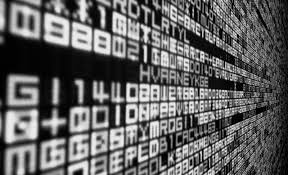“You can’t Google this,” said Richard Gevers (@richardgevers), founder of Open Data Durban. We were a couple of weeks in at the Code for South Africa Data Journalism Academy, enjoying a well-earned glass of overpriced wine at one of those Cape Town bars where you are always under-dressed.
Conversation turned to the events of the last two weeks – an intensive two week introduction to everything data journalism-related, for our first cohort of Academy residents. Spreadsheets, data wrangling, story-telling tools, visualisations, scraping, and then some.
Gevers, who was in town to do a training session at the Academy, was also here to facilitate an incubation bootcamp at the new Codebridge civic tech hub.
As our conversation excitedly turned to these new Code for South Africa projects, Gevers intervened with the phrase that articulated it better than any of us could: “You can’t Google this.”
And you can’t. This is the first newsroom and Academy specialising in data-driven journalism in Africa. There’s been data journalism training before, but never quite like this. Working journalists are nominated by their newsrooms to attend three months of comprehensive training about data-driven journalism.
We want to do more than give journalists additional skills. We want to grow data journalism in newsrooms by fully equipping journalists with everything they need to become specialists in the field.
The first thing you will learn at the Academy is that data journalism is just journalism. It may be driven by data, but the same rules apply. The means may differ, but the ethics of the profession remain. Data is a source to be interrogated and properly verified, like any other.
Accurate data gives readers information that can help them make informed decisions, and the world around them becomes a bit easier to understand.
Data matters, because hidden between the numbers and the spreadsheets and the endless reams of documents, gems of information hide from journalists who don’t have the skills to find them.
The second thing you will learn at the Academy is: You know nothing, Jon Snow. (With apologies to the three of you who don’t watch Game of Thrones.)
Think you can wrangle data? Wait until you train with Daniela Lépiz from Costa Rica, with her Masters degree in Data Journalism, who uncovered the way that private energy producers were scamming Spaniards out of millions in the name of profit-seeking.
Think you can make a visualisation and embed it on your website? You haven’t met our developers yet, who built a tax clock that can tell you where your tax money is going.
These are the best experts in the field, and they’re a part of this Academy.
This is, I believe, hands down the most exciting thing happening in journalism right now.
Diary meetings are spent workshopping data stories. Journalists sit down with data wranglers to find stories in massive data sets. Our team is constantly thinking of innovative ways to use technology to visualise and simplify complex stories, and hopefully produce visualisations that are more than infographics, that can be used online and in print. Video, graphs, interactive maps, narrative writing – the more innovative, the better.
We’re well into our third month as an Academy, and a journalist opens a spreadsheet. In the space of half an hour, he has found a story in the data, made two graphs, found a way to make a tricky scraping tool work better, and has made a list of experts he can talk to.
And I think, “I think I have a data journalist, here.”
Just across the passage, there’s a team of specialists preparing for another day’s training, and wrestling data sets from sometimes uncooperative sources.
Tomorrow they all converge, like they do every day, and they make data journalism. It’s an academy and a civic tech lab, an open data initiative and a newsroom, and a data journalism laboratory, under one roof. And you can’t Google that.








